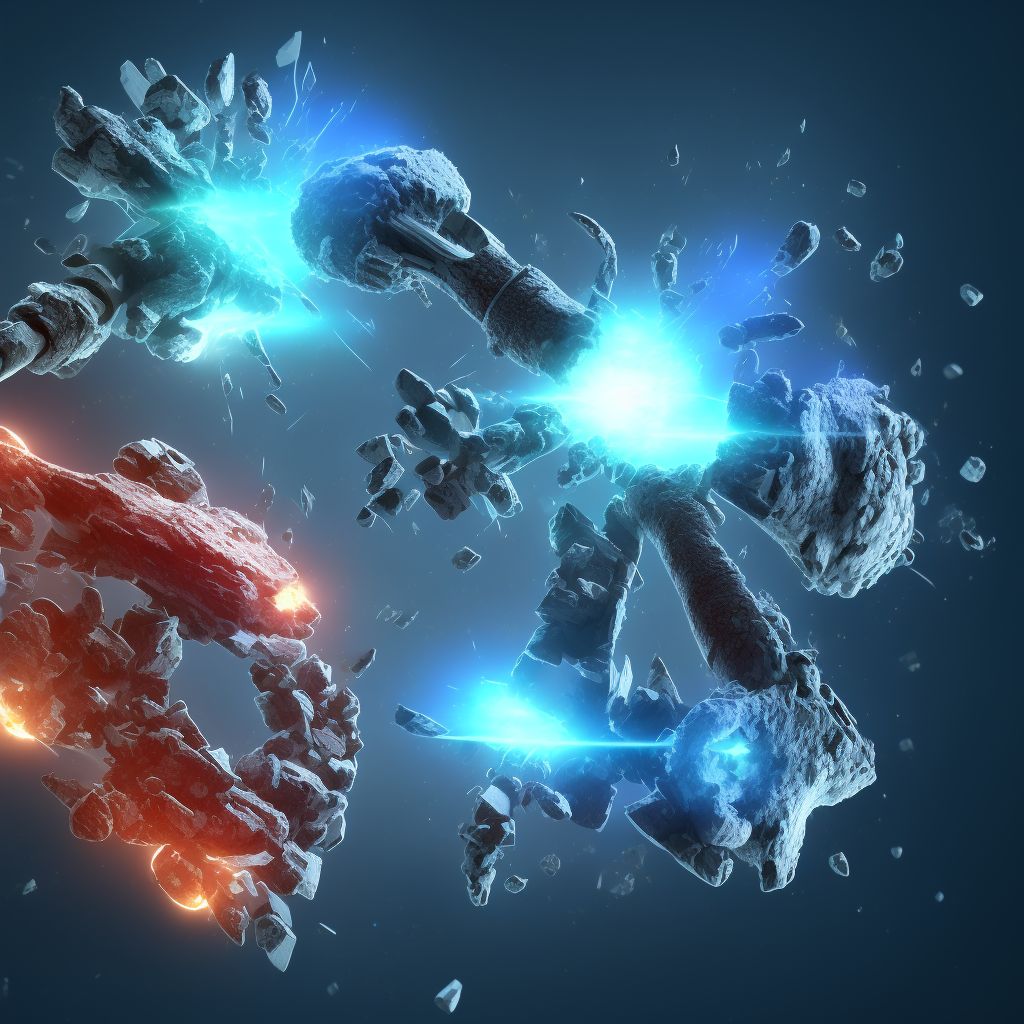
Other fracture of shaft of unspecified tibia, subsequent encounter for open fracture type I or II with malunion Save
ICD-10 code: S82.299Q
Disease category: S82.299: Other fracture of shaft of unspecified tibia
Understanding Other Fracture of Shaft of Unspecified Tibia
When it comes to bone fractures, the tibia is one of the most commonly affected bones in the human body. Fractures of the tibial shaft can occur due to various reasons, such as accidents, sports injuries, or falls. One specific type of fracture is known as "Other fracture of shaft of unspecified tibia, subsequent encounter for open fracture type I or II with malunion."
Malunion refers to the improper healing of a fracture, resulting in misalignment or deformity. In the case of this specific tibia fracture, it is considered an open fracture type I or II, which means that the bone has broken through the skin or there is a wound associated with the fracture.
While we will not discuss treatment in this article, it is important to note that seeking medical attention for this type of fracture is crucial to ensure proper healing and avoid potential complications.
Symptoms and Diagnosis
Patients with this type of fracture may experience symptoms such as pain, swelling, difficulty walking, and visible deformity. Upon examination, a healthcare professional will evaluate the fracture's severity and determine the best course of action for treatment.
Causes and Risk Factors
Various factors can contribute to this type of tibial shaft fracture, including trauma from accidents, sports injuries, or falls. Individuals who are involved in high-impact activities or have weak bones due to osteoporosis may be at a higher risk.
Prevention and Recovery
While it may not be possible to prevent accidental injuries, taking precautions such as using proper safety equipment during sports activities and maintaining a healthy lifestyle can help reduce the risk of fractures. Following medical advice and adhering to prescribed treatment plans are vital for a successful recovery.
- Seek medical attention promptly
- Adhere to prescribed treatment plans
- Follow a healthy lifestyle to promote bone health
Conclusion
Other fractures of the shaft of an unspecified tibia, subsequent encounter for open fracture type I or II with malunion, can be a challenging condition to deal with. If you or someone you know experiences symptoms associated with this fracture, it is essential to consult a healthcare professional for an accurate diagnosis and appropriate treatment.
Remember, early intervention and proper medical care are key to ensuring a successful recovery and minimizing the risk of complications.
Treatment of Other fracture of shaft of unspecified tibia, subsequent encounter for open fracture type I or II with malunion:
Treatment Options for 'Other Fracture of Shaft of Unspecified Tibia, Subsequent Encounter for Open Fracture Type I or II with Malunion'
When it comes to treating complex fractures like 'Other fracture of shaft of unspecified tibia, subsequent encounter for open fracture type I or II with malunion,' there are several effective treatment options available. The choice of treatment dep...
To see full information about treatment please Sign up or Log in